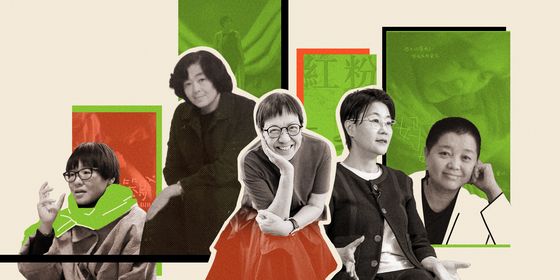Brutal assault in Tangshan renews calls for better education on sexual consent in China
The most shocking story on Chinese social media last week started with a rejection. As shown by surveillance footage from a barbecue restaurant in Tangshan, Hebei province, at around 2:40 a.m. on June 10, a seemingly inebriated man wobbled over to a woman dining with friends, rubbed his hand on her back, and muttered what sounded like obscenities, to which the woman responded by pushing him away and yelling, “What’s wrong with you?”
This “no” was not taken well. The man slapped the woman in response, and when one of her female companions retaliated, he and his male companions launched into an all-out assault on them—with bottles smashed, chairs thrown across the room, one woman dragged outside by her hair to continue the beating, and other women battered when they tried to intervene.
As the internet boiled over with outrage about the brutality and the local police’s seemingly slow reaction, Qianqian Law Firm, a Beijing-based firm which specializes in legal aid and women’s rights advocacy, reminded the public that this is not an isolated event. In an article posted on its WeChat account, the firm lists six vicious events since 2020 from Shanxi, Zhejiang, Anhui, Sichuan, Shandong, and Yunnan provinces, all of which feature women who experienced violent retaliation after turning down sexual harassment, with two cases leading to the death of the victims.
In July of last year, following the notorious sexual assault exposé involving actor and singer Kris Wu—whose case coincidentally had its first hearing on June 10, the day of the Tangshan incident—the hashtag “What exactly is sexual consent” reached more than 380 million views on Weibo. Despite this, and increased efforts by grassroots organizations to raise awareness, patchy education, legislation, and law enforcement still seemingly leave many confused on the definition of sexual consent, victims of sexual assault still lacking places to turn for help.
Katharine Zhang, a woman in her mid-20s living in Beijing, tells TWOC that she feels “very helpless” in the wake of the Tangshan event. She is reminded of an experience she had last year, when an anonymous user on messaging app QQ started adding her acquaintances and friends to spread rumors about her personal life. Zhang has reason to believe the perpetrator is a man whose request for a casual relationship she rejected a few years ago.
In August 2019, Alex Chang, a feminist blogger on Weibo with over 1 million followers, hosted a pop-up exhibition about sexual consent in a bar in Beijing. Chang decorated the walls and ceilings with print-outs or projected quotes showing all kinds of excuses or strategies women use to turn down a request for sex or intimacy, which Chang had collected from her followers. Some of the quotes read, “I suddenly got my period” and “My room is messy,” while others described efforts to change the topic.
In a video Chang later shared on Weibo, several female participants in the event explained that in situations of unwanted attention, they do not directly voice their lack of consent, wanting to “save face” for the men in question. This echoes some commenters after the Tangshan incident who, well-intentioned or not, suggested the victim had made her first assailant “lose face” by giving him a direct, public rejection. However, another participant in the project shared that she was forcibly kissed by a man even after she protested, and then told that she was reciprocating because she did not dodge his advances. “But in reality I was unable to dodge. He was strong,” she tells the camera.













